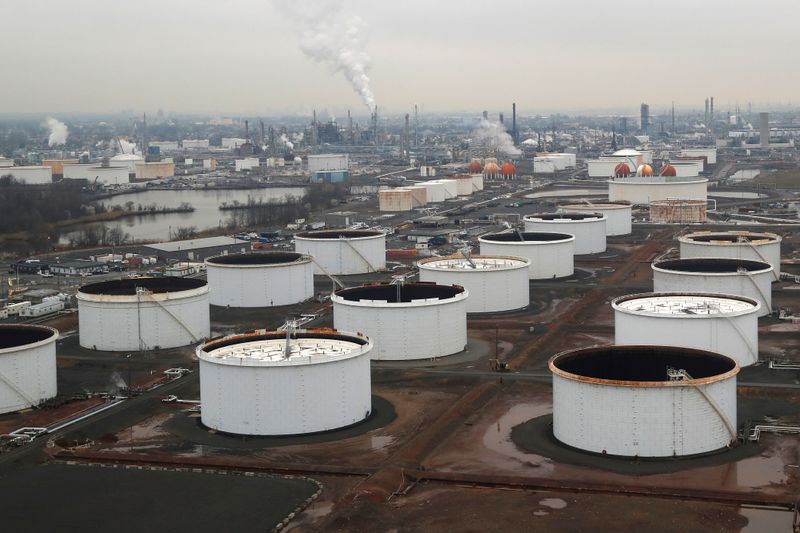By Sonali Paul and Seng Li Peng
MELBOURNE/SINGAPORE (Reuters) - Oil prices gained on Tuesday due to fears that refineries could be hit by a storm brewing in the Gulf of Mexico, while buyers also drew relief from U.S. President Donald Trump's return to the White House after being treated for COVID-19 in hospital.
The gains slightly extended Monday's rally of more than 5%, when buyers took heart from Trump saying he would return to the White House, and from growing hopes for an agreement on a U.S. stimulus package to counter the impact of the pandemic.
U.S. West Texas Intermediate (WTI) crude (CLc1) futures were trading 36 cents, or nearly 0.9% higher at $39.58 a barrel at 0710 GMT.
Brent crude (LCOc1) futures rose 25 cents, or 0.6%, to $41.54 a barrel.
Oil prices had fallen sharply when Trump went to hospital on Friday, as the investors were filled with uncertainty over what would happen in the United States as the country gears up for a presidential election on Nov. 3.
But with that uncertainty fading, the oil market was beset by supply concerns due to a spreading labour strike in Norway, which has shut six offshore oil and gas fields, and the evacuation of oil platforms in the Gulf, with Tropical Storm Delta heading toward the Louisiana and Florida coast.
"It's the supply-side factors that have changed in the last 24 hours and are contributing more to the uplift," said Lachlan Shaw, head of commodity research at National Australia Bank.
The Norway strike will cut the country's total output capacity by just over 330,000 barrels of oil equivalent per day, or about 8% of total production, according to the Norwegian Oil and Gas Association.
Meanwhile hopes for a bipartisan U.S. economic relief package grew as House Speaker Nancy Pelosi and Treasury Secretary Steven Mnuchin spoke on Monday and prepared to talk again Tuesday, in a concerted effort to reach a compromise on legislation.
"There's better (fuel) demand sentiment surrounding the potential for U.S. fiscal agreement, and perhaps President Trump leaving hospital might drive a bit of impetus to conclude a deal there," Shaw said.
Data from the American Petroleum Institute on Tuesday and the U.S. government on Wednesday will provide a picture of whether demand is picking up.

Five analysts polled by Reuters estimate, on average, that crude stocks rose by 400,000 barrels in the week to Oct. 2, while gasoline inventories likely fell by 900,000 barrels and distillate stockpiles, which include diesel and heating oil, likely dropped by 1.4 million barrels.